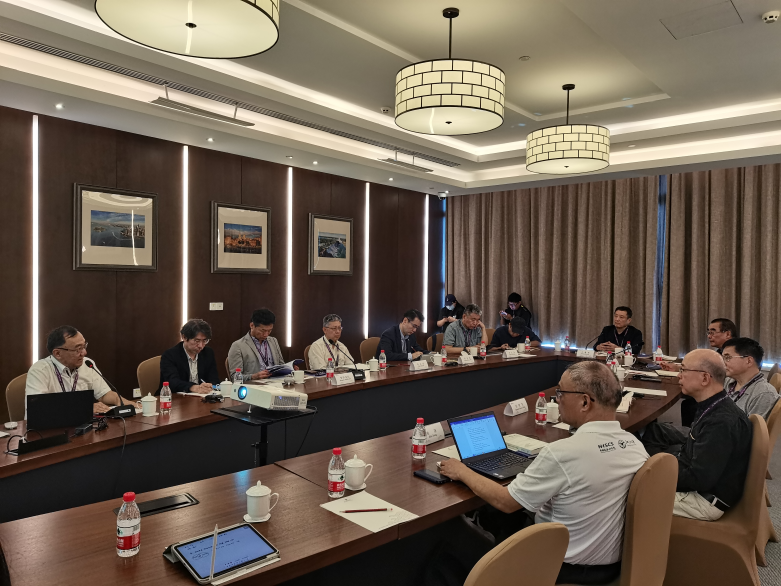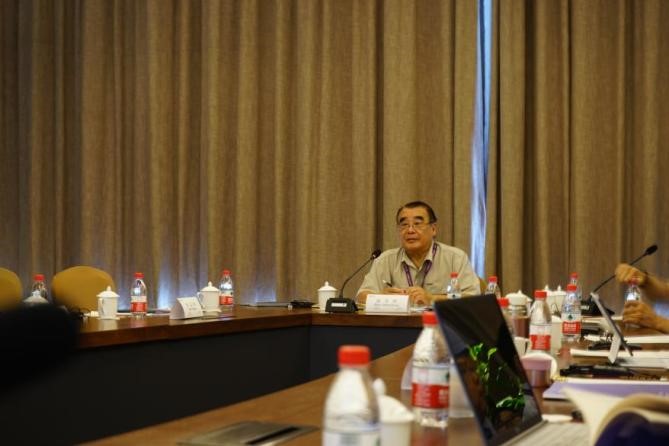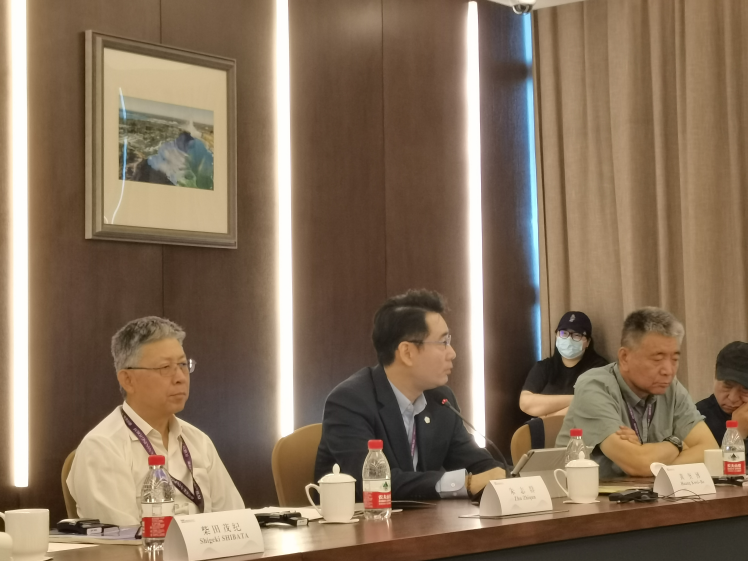On September 17 to 19, 2023, Nanjing University and Chey Institute for Advanced Studies co-hosted the Nanjing Forum 2023, with the theme of “Civilization, Technology and Common Values: The Vision of Asia”. Following the pace of the times, the Forum focused on the demands of national development and the progress of world civilization, explored the issues of social-economic development and the inheritance of human civilization and pushed towards the organic fusion of traditional and modern cultures, so as to contribute to building an Asia-Pacific community with a shared future. The Sub-forum on International Studies, organized by School of International Studies, Nanjing University, set two sessions “Culture and Diplomacy” and “International Relations in East Asia”, with the participation of nine overseas scholars including Professor Zhao Quansheng of American University. Zhu Feng, Executive Dean of School of International Studies and Executive Director of the China Center for Collaborative Studies of South China Sea, Nanjing University, and Wang Yizhou, Professor and Director of the Institute of Area Studies, Nanjing University, presided over the two sessions respectively. Professor Zhu Zhiqun made a conclusion on behalf of the Sub-forum.

In the first session “Culture and Diplomacy”, Professor Zhu Zhiqun of Bucknell University traced the history of cultural exchanges between China and the United States against the backdrop of tensions and frictions between China and the United States. Based on detailed field research data, Professor Tang Wenfang of the Chinese University of Hong Kong outlined the political and cultural landscape of Hong Kong from a scientific point of view, pointing out that when the central government and local governments at all levels govern Hong Kong or promote cooperation with Hong Kong, in addition to considering favorable factors such as economic and political factors, they also need to pay more attention to public opinion. It is necessary to establish “heart connectivity” among the “physical connectivity” and “institutional connectivity”. Based on international trade, Professor Shigeki Shibata of Oita University, Japan, analyzed in depth the challenges facing the new multilateral international political and economic order in the post epidemic era and the possibility of its establishment. Professor Zhang Xiaoquan of American University, USA, looked forward to the prospects of sustainable development of Chinese language education and faculty members from his own teaching experience. Professor Liu Peiyi of National Taiwan Quemoy University, discussed the historical resources and possible development paths to be drawn from Confucianism to construct an Eastern Peace Studies, in light of Quemoy’s local understandings and experiences about peace. Professor Hu Shaohua of Wagner College, analyzed the international political realist thoughts and behaviors of Confucius’ disciple Zigong, reflecting on the realist factors contained in Confucianism.

In the session on “International Relations in East Asia” on the morning of September 17th, Professor Zhao Quansheng of American University explained the power shifts in the Asia-Pacific region in the past 30 years, and reviewed the historical interactions among East Asian countries. He pointed out that “trust” is one of the most important factors in diplomacy, and that East Asia should cooperate and interact in the East Asian Way. Professor Yin Yanjun of Kanto Gakuin University analyzed the China-U.S. competition and the new Northeast Asian security architecture from a new perspective, taking into account the Japanese constitution and people’s willingness to join the army. Professor Huang Kuibo of Taiwan Chengchi University, pointed out that cross-strait relations could be improved through cultural and artistic exchanges. He hoped that cross-strait people-to-people exchanges would be less official, avoiding being highly politicized, and that more emphasis be placed on the roles of public diplomacy and cultural and artistic exchanges in improving cross-strait relations.

Since 2015, the School of International Studies and the Department of International Politics of Nanjing University have been participating in the initiation and construction of Nanjing Forum, and have respectively organized the sub-forums of “Nanjing Forum 2015-Creating Asia-Pacific Peace, Security and Prosperity in the 21st Century”, “Nanjing Forum 2018-Constructing an Asia-Pacific Community with a Shared Future”, and “Nanjing Forum 2021-Responsibility and Coexistence: Global Crises, Opportunities and Solutions”. The School of International Studies of Nanjing University will continue to support the organization of the Nanjing Forum with Chinese perspective and focus on global development.
(Text/ Dang Dongwei, Li Xinman;Translate/ Bao Yiwen)

